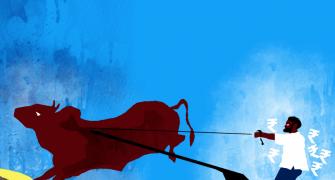A new study has shown that sexual problems can be attributed to a painful childhood, by finding that children who are spanked or have been subjected to some corporal punishment are more likely to have sexual problems as a teen or adult.
Murray Straus, co-director of the Family Research Laboratory at the University of new Hampshire, presented his new research findings at the American Psychological Association's Summit on Violence and Abuse in Relationships: Connecting Agendas and Forging New Directions held on Feb 28 and 29 at the Hyatt Regency Hotel in Bethesda, MD.
After analysing the results of four studies, Straus came to the conclusion that spanking and other corporal punishment by parents are associated with an increased probability of three sexual problems as a teen or adult -- Verbally and physically coercing a dating partner to have sex; Risky sex such as premarital sex without a condom; and Masochistic sex such as being aroused by being spanked when having sex.
'These results, together with the results of more than 100 other studies, suggest that spanking is one of the roots of relationship violence and mental health problems. Because there is 93 per cent agreement between studies that investigated harmful side effects of spanking, and because over 90 per cent of US parents spank toddlers, the potential benefits for prevention of sexual and relationship violence is large,' Straus says.
A survey of more than 14,000 university students in 32 nations found that 29 per cent of the male and 21 per cent of the female students had verbally coerced sex from another person. Coerced sex involves insisting on sex when the partner does not want to, or threatening to end the relationship if the partner does not have sex.
The percentages of those who physically forced sex were much lower: 1.7 per cent of the men and 1.2 per cent of the women said they had used physical force, such as holding down the partner or hitting a partner to make them have sex.
'The most important finding of this study is that each increase of one step on a four-step measure of corporal punishment was associated with a 10 percent increase in the probability of verbal sexual coercion by men and a 12 percent increase in sexual coercion by women,' Straus says.
'The relation of corporal punishment to physically forcing sex was even stronger. Each increase of one step in corporal punishment was associated with a 33 per cent increase in the probability of men forcing sex and a 27 per cent increase in the probability of women doing this,' he adds.
In the second study, Straus analysed the same sample of university students, but focused on whether they had insisted on sex without using a condom. Straus found that 15 per cent of the men and 13 per cent of the women had insisted on sex without a condom at least once in the past year.
Using the four-step corporal punishment scale, Straus found that of the group with the lowest score on the corporal punishment scale, 12.5 per cent had insisted on unprotected sex. In contrast, 25 per cent of students in the highest corporal punishment group engaged in this type of risky sex.
The third study analysed data on 440 students in a New Hampshire high school. The students were divided into five groups, ranging from those who were never spanked to those whose parents used corporal punishment even when they were 13 years old and older. The study evaluated eight indicators of risky sex, such as more than one sex partner.
Straus found that students who had experienced corporal punishment had engaged in more risky sexual behaviour than students who had not been spanked. From this study, Straus concludes that corporal punishment weakens the bond between the child and the parents. He believes that this alienation from parents may make teenagers less likely to avoid sex and less likely to follow safe sex practices.
In the fourth study, Straus asked 207 students at three colleges about whether they had ever been sexually aroused by masochistic sex: imagining that they were being tied up when having sex, engaging in rough sex, or by spanking, and if they had been sexually aroused by actually doing these three things.
The study found that 75 per cent of students who had been spanked a lot by their parents were sexually aroused by masochistic sex. In contrast, 40 percent of students who had never been spanked were interested in masochistic sex.
To reduce the use of corporal punishment, Straus recommends that the American Psychological Association, the US Children's Bureau, and other organizations publicize a recommendation that parents should never spank.
'However, to make this work, we need to start by informing professionals who advise parents about the evidence-base for that policy. They need this information to be able to give appropriate information and help to parents about replacing spanking with positive discipline to correct misbehaviour,' he says.







